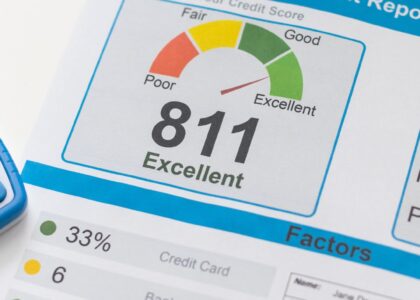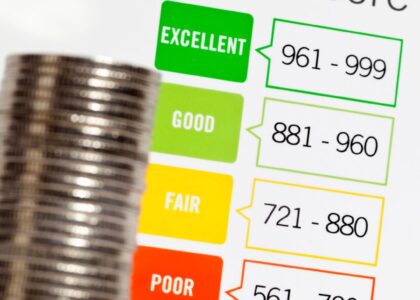Credit repair is a meticulous process that begins with a thorough assessment of your credit reports. At Credit Repair Bay Area, we start by obtaining your credit reports from the three major credit bureaus: Equifax, Experian, and TransUnion. These reports serve as the foundation for our analysis, allowing us to identify inaccuracies, errors, and negative items that may be dragging down your credit score.
During the initial assessment, our team of credit experts meticulously scrutinizes each line of your credit reports to uncover any discrepancies. We pay close attention to details such as incorrect personal information, duplicate accounts, outdated negative items, and any other inaccuracies that may be impacting your credit score.
Once we’ve identified the areas that require attention, we work with you to develop a customized plan tailored to your unique credit situation and goals. This plan serves as a roadmap for the credit repair process, outlining the steps we’ll take to address the issues identified on your credit reports and improve your overall credit health.
At Credit Repair Bay Area, we understand that every individual’s credit journey is unique. That’s why we take a personalized approach to credit repair, ensuring that our strategies are tailored to your specific needs and circumstances. Whether you’re looking to qualify for a mortgage, secure a car loan, or simply improve your credit score for better financial opportunities, we’re here to help you every step of the way.
Throughout the credit repair process, we maintain open lines of communication with our clients, providing regular updates on our progress and answering any questions or concerns they may have. Our goal is not only to improve your credit but also to empower you with the knowledge and tools you need to maintain healthy credit habits long into the future.
Factors Influencing the Duration of Credit Repair
The duration of credit repair can vary depending on several factors, each of which plays a significant role in shaping the overall timeline of the process. Understanding these factors can provide valuable insights into what to expect as you embark on your credit repair journey.
Severity of Issues:
The severity of the negative items on your credit reports can have a profound impact on the duration of the credit repair process. For instance, if your credit reports contain multiple bankruptcies, foreclosures, or collections accounts, addressing these issues may take longer compared to disputing minor inaccuracies or late payments. Severe negative items often require more extensive documentation and negotiation with creditors, which can prolong the overall timeline of credit repair.
Number of Disputes:
The number of disputes filed with credit bureaus and creditors also influences the duration of credit repair. Each dispute submitted requires time for investigation and resolution, as credit bureaus and creditors must verify the accuracy of the information in question. If your credit reports contain numerous inaccuracies or discrepancies, the process of filing and resolving disputes for each item may extend the overall timeline of credit repair.
Response Time:
The responsiveness of credit bureaus and creditors to dispute requests is another factor that can affect the duration of credit repair. Delays in responses from credit bureaus or creditors can prolong the process, as it may take additional time to receive updates and follow up on outstanding disputes. While some disputes may be resolved quickly, others may require persistence and ongoing communication to achieve a satisfactory outcome.
Complexity of the Issues:
The complexity of the credit repair issues identified on your credit reports can also impact the duration of the process. For example, if your credit reports contain errors related to identity theft or fraud, resolving these issues may require additional documentation and coordination with law enforcement agencies. Similarly, if you’re disputing inaccuracies across multiple accounts or credit bureaus, the complexity of managing these disputes can contribute to a longer credit repair timeline.
In summary, the duration of credit repair is influenced by various factors, including the severity of issues, the number of disputes filed, the responsiveness of credit bureaus and creditors, and the complexity of the issues identified. While some individuals may see improvements in their credit scores relatively quickly, others may require more time to address and resolve underlying issues. At Credit Repair Bay Area, we work diligently to expedite the credit repair process while ensuring thorough and effective results for our clients.
Average Timeline for Credit Repair
Understanding the average timeline for credit repair is crucial for managing expectations and planning your financial goals effectively. While every credit repair journey is unique, there are general patterns and timelines that individuals can expect based on the complexity of their credit issues and the responsiveness of credit bureaus and creditors.
General Timeline:
The typical timeline for credit repair can vary from a few months to a year or more, depending on various factors such as the severity of negative items, the number of disputes filed, and the complexity of the issues identified. In some cases, individuals may see noticeable improvements in their credit scores within the first few months of starting the credit repair process, especially if they have relatively minor inaccuracies or discrepancies on their credit reports. However, for individuals with more complex credit issues or severe negative items, the credit repair process may take longer to yield significant results.
Factors Affecting Timeline:
Several factors can influence the duration of the credit repair process:
- Severity of Negative Items: Individuals with severe negative items such as bankruptcies, foreclosures, or multiple collections may require more time to address and resolve these issues compared to those with minor inaccuracies or late payments.
- Number of Disputes: The number of disputes filed with credit bureaus and creditors can impact the duration of credit repair, as each dispute requires time for investigation and resolution. Individuals with numerous inaccuracies or discrepancies on their credit reports may experience a longer credit repair timeline due to the volume of disputes that need to be addressed.
- Responsiveness of Credit Bureaus and Creditors: The responsiveness of credit bureaus and creditors to dispute requests can also influence the timeline of credit repair. Delays in responses or failures to update credit reports promptly can prolong the process, requiring additional follow-up and communication to achieve resolution.
Progress Tracking:
Throughout the credit repair process, it’s essential to track your progress and monitor changes on your credit reports regularly. By staying informed about the status of disputes and any updates to your credit profile, you can gauge the effectiveness of your efforts and make informed decisions about next steps. At Credit Repair Bay Area, we provide our clients with regular updates and transparent communication to ensure they are informed and empowered throughout the credit repair journey.
While the average timeline for credit repair can vary depending on individual circumstances, proactive steps and strategic planning can help expedite the process and achieve meaningful results. By addressing inaccuracies, resolving disputes, and practicing responsible credit management habits, individuals can take control of their credit health and work towards achieving their financial goals. If you’re ready to embark on your credit repair journey, don’t hesitate to contact Credit Repair Bay Area for personalized assistance and guidance. Together, we’ll pave the way for a brighter and more prosperous financial future.
Addressing Common Questions About Credit Repair
As individuals navigate the credit repair process, they often encounter common questions and concerns about the effectiveness and feasibility of improving their credit scores. In this section, we’ll address some of the most frequently asked questions about credit repair and provide insights to help individuals make informed decisions about their financial health.
Is it Worth Paying Someone to Fix Your Credit?
Paying for credit repair services can be a valuable investment for individuals who lack the time, expertise, or resources to address credit issues independently. Professional credit repair agencies like Credit Repair Bay Area have the knowledge, experience, and tools necessary to navigate the complexities of the credit repair process effectively. While there may be costs associated with hiring a credit repair agency, the potential benefits of improved credit scores and financial opportunities can far outweigh the initial investment.
How Long Does it Take to Rebuild Credit from 500?
Rebuilding credit from a low score of 500 can take time and dedication, but it’s certainly achievable with the right strategies and approach. By consistently making on-time payments, reducing debt balances, and addressing negative items on your credit reports, you can gradually improve your credit score over time. While there is no guaranteed timeline for rebuilding credit, individuals who demonstrate responsible credit management habits can see significant improvements within a year or two.
Can Credit Be Repaired in 6 Months?
While significant improvements in credit scores are possible within a six-month timeframe, complete credit repair may take longer, depending on the severity of issues and the responsiveness of credit bureaus and creditors. Individuals with relatively minor inaccuracies or discrepancies on their credit reports may see noticeable improvements within six months, whereas those with more complex credit issues may require additional time to achieve satisfactory results. However, with proactive steps and strategic planning, individuals can make meaningful progress towards repairing their credit within a relatively short timeframe.
Is it True That After 7 Years Your Credit is Clear?
The seven-year rule refers to the length of time that negative items can remain on your credit report. While certain negative items, such as late payments and collections accounts, may be removed from your credit report after seven years, the overall impact on your credit score may persist. Additionally, some negative items, such as bankruptcies and foreclosures, can remain on your credit report for longer periods. It’s essential to understand the nuances of the seven-year rule and how it applies to your specific credit situation.
How Do I Clear a Bad Credit Record?
Clearing a bad credit record involves addressing inaccuracies, disputing negative items, and practicing responsible credit management habits. Start by obtaining copies of your credit reports from the three major credit bureaus and carefully review them for any errors or discrepancies. Dispute any inaccuracies with the credit bureaus and follow up with creditors to resolve outstanding issues. Additionally, focus on making on-time payments, reducing debt balances, and avoiding new credit inquiries to improve your credit health over time.
Strategies for Effective Credit Repair
Navigating the credit repair process requires a strategic approach and proactive steps to achieve meaningful results. Here are some practical strategies to help you improve your credit health and achieve your financial goals:
Regular Credit Report Review:
Begin by obtaining copies of your credit reports from all three major credit bureaus – Equifax, Experian, and TransUnion. Carefully review each report for errors, inaccuracies, or discrepancies that may be negatively impacting your credit score. Monitoring your credit reports regularly allows you to stay informed about your credit status and take timely action to address any issues.
Dispute Inaccurate Information:
If you discover any errors or inaccuracies on your credit reports, take immediate steps to dispute them with the credit bureaus. You can file disputes online, by mail, or over the phone, providing supporting documentation to substantiate your claims. Credit bureaus are obligated to investigate disputed items within a reasonable timeframe and rectify any inaccuracies found.
Timely Bill Payments:
Maintaining a positive payment history is crucial for improving your credit score. Make it a priority to pay all of your bills – including credit cards, loans, and utility bills – on time each month. Late payments can have a detrimental impact on your credit score and may linger on your credit report for up to seven years. By consistently making on-time payments, you can demonstrate responsible credit management habits and enhance your creditworthiness.
Credit Card Balance Management:
High credit card balances relative to your credit limits can adversely affect your credit utilization ratio, which is a significant factor in determining your credit score. Aim to keep your credit card balances low and pay off any outstanding balances as promptly as possible. By reducing your credit card balances, you can lower your credit utilization ratio and positively influence your credit score.
Limit New Credit Inquiries:
Avoid applying for new credit cards or loans unnecessarily, as each new credit inquiry generates a hard inquiry on your credit report, which can temporarily lower your credit score. Instead, focus on managing your existing credit responsibly and refrain from opening new accounts unless absolutely necessary. Minimizing new credit inquiries can help preserve your credit score and prevent unnecessary fluctuations.
Seek Professional Assistance:
If you encounter challenges or complexities in improving your credit on your own, consider seeking professional assistance from a reputable credit repair agency like Credit Repair Bay Area. Our team of experienced credit experts can provide personalized guidance and support to help you navigate the credit repair process more effectively. We have the knowledge, resources, and tools necessary to address a wide range of credit issues and maximize your chances of success.
By implementing these strategies and taking proactive steps to improve your credit health, you can pave the way for a brighter financial future. At Credit Repair Bay Area, we’re committed to helping individuals overcome credit challenges and achieve their long-term financial goals. Contact us today to learn more about our credit repair services and how we can assist you on your credit repair journey.
Maintaining Healthy Credit Habits
Improving your credit health isn’t just about addressing past issues – it’s also about developing and maintaining healthy credit habits for the long term. In this section, we’ll explore some essential habits that can help you sustain your progress and continue to build a strong credit profile:
Regularly Monitor Your Credit:
Make it a habit to monitor your credit regularly, even after completing the credit repair process. By staying vigilant, you can quickly identify any new inaccuracies or discrepancies that may arise and take prompt action to address them. Many credit monitoring services offer alerts for significant changes to your credit report, providing added peace of mind.
Stick to Your Budget:
Creating and adhering to a budget is key to managing your finances responsibly and avoiding excessive debt. Allocate your income towards essential expenses, savings, and debt payments, prioritizing high-interest debt first. By living within your means and avoiding unnecessary expenses, you can maintain financial stability and minimize the risk of future credit problems.
Use Credit Wisely:
While responsible credit usage can help build your credit score, it’s essential to use credit wisely and avoid overspending. Aim to keep your credit card balances well below your credit limits and only charge what you can afford to repay in full each month. Avoid carrying a balance on your credit cards whenever possible, as high credit card utilization can negatively impact your credit score.
Pay Bills on Time:
Maintaining a positive payment history is crucial for preserving your credit score and demonstrating creditworthiness to lenders. Make it a priority to pay all of your bills – including credit cards, loans, and utilities – on time each month. Consider setting up automatic payments or calendar reminders to ensure you never miss a payment deadline.
Regularly Review Your Credit Report:
Continuously monitoring your credit report allows you to stay informed about your credit status and detect any changes or discrepancies promptly. Review your credit reports from all three major credit bureaus at least once a year, or more frequently if you suspect fraudulent activity or identity theft. Reporting any suspicious or unauthorized activity to the credit bureaus can help protect your credit profile and prevent further damage.
Stay Informed:
Keep yourself informed about changes in credit laws, regulations, and best practices for managing your credit. Educate yourself about factors that can impact your credit score, such as credit utilization, length of credit history, and types of credit accounts. By staying informed and proactive, you can make informed decisions about your credit and take steps to protect and improve your financial well-being.
The Importance of Patience and Persistence
As you embark on your journey to repair and improve your credit, it’s essential to understand that progress may not happen overnight. In this section, we’ll discuss the importance of patience and persistence in achieving your credit goals:
Understanding the Timeline:
Credit repair is a process that takes time, often requiring several months or even years to achieve significant results. While some individuals may see quick improvements in their credit scores, others may face obstacles and setbacks along the way. It’s crucial to understand that credit repair is not a quick fix but rather a gradual journey towards financial health and stability.
Managing Expectations:
Setting realistic expectations is key to maintaining motivation and momentum throughout the credit repair process. While it’s natural to want to see immediate results, it’s essential to recognize that progress may be gradual and incremental. Celebrate small victories along the way and remain focused on the long-term goal of achieving a healthier credit profile.
Staying Committed:
Consistency is key when it comes to credit repair. Stay committed to the strategies and habits that contribute to positive credit outcomes, such as making on-time payments, reducing debt, and disputing inaccuracies on your credit reports. Even when faced with challenges or setbacks, stay focused on your goals and continue to take proactive steps towards improving your credit health.
Seeking Support:
Don’t hesitate to reach out for support and guidance when needed. Whether it’s from a trusted friend or family member, a professional credit repair agency like Credit Repair Bay Area, or online communities and resources, seeking support can help you navigate challenges and stay motivated on your credit repair journey. Surround yourself with positive influences and individuals who can provide encouragement and accountability.
Celebrating Progress:
Celebrate your progress and accomplishments along the way, no matter how small they may seem. Recognize the effort and dedication you’ve put into improving your credit health and acknowledge the positive changes you’ve made. By celebrating your achievements, you can stay motivated and inspired to continue working towards your credit goals.
Embracing the Journey:
Ultimately, credit repair is not just about improving your credit score – it’s about building a foundation for a brighter financial future. Embrace the journey, with all its ups and downs, and view each challenge as an opportunity for growth and learning. By approaching credit repair with patience, persistence, and a positive mindset, you can overcome obstacles and achieve lasting success.
Final Thoughts and Next Steps
As we conclude our discussion on credit repair, it’s essential to reflect on the progress you’ve made and consider the next steps in your journey towards financial health. Here are some final thoughts to keep in mind:
Reflect on Your Progress:
Take a moment to reflect on the progress you’ve made in repairing and improving your credit. Celebrate your achievements and acknowledge the hard work and dedication you’ve invested in this process. Remember that every step you’ve taken has brought you closer to your financial goals.
Assess Your Current Situation:
Assess your current credit situation and determine any remaining areas that may require attention. Review your credit reports from all three major credit bureaus and identify any lingering inaccuracies or discrepancies that need to be addressed. Consider your long-term financial goals and how improving your credit further can support those objectives.
Create a Plan for the Future:
Develop a plan for maintaining healthy credit habits and continuing to build your credit over time. Set specific, measurable, and achievable goals for yourself, such as increasing your credit score by a certain number of points or qualifying for a particular type of loan. Outline the steps you’ll take to achieve these goals and establish a timeline for implementation.
Stay Informed and Educated:
Stay informed about changes in the credit industry, updates to credit laws and regulations, and best practices for managing your credit. Continue to educate yourself about factors that impact your credit score and ways to improve your credit health. Knowledge is power, and the more you understand about credit, the better equipped you’ll be to make informed financial decisions.
Stay Connected:
Stay connected with Credit Repair Bay Area and other trusted resources for ongoing support and guidance. Whether you have questions about your credit reports, need assistance with disputing inaccuracies, or simply want advice on maintaining healthy credit habits, we’re here to help. Don’t hesitate to reach out whenever you need assistance or advice.
Take Action:
Finally, take action on your plan and commit to making positive changes in your financial life. Implement the strategies and habits you’ve learned throughout the credit repair process and stay disciplined in your approach. Remember that progress takes time, but with patience, persistence, and dedication, you can achieve your financial goals and build a brighter future for yourself and your loved ones.
In conclusion, credit repair is a journey that requires patience, perseverance, and a proactive approach. By reflecting on your progress, assessing your current situation, creating a plan for the future, staying informed and educated, staying connected with trusted resources, and taking action, you can continue to improve your credit and work towards a more secure financial future. At Credit Repair Bay Area, we’re committed to supporting you every step of the way. Contact us today to learn more about our credit repair services and how we can help you achieve your financial goals.





